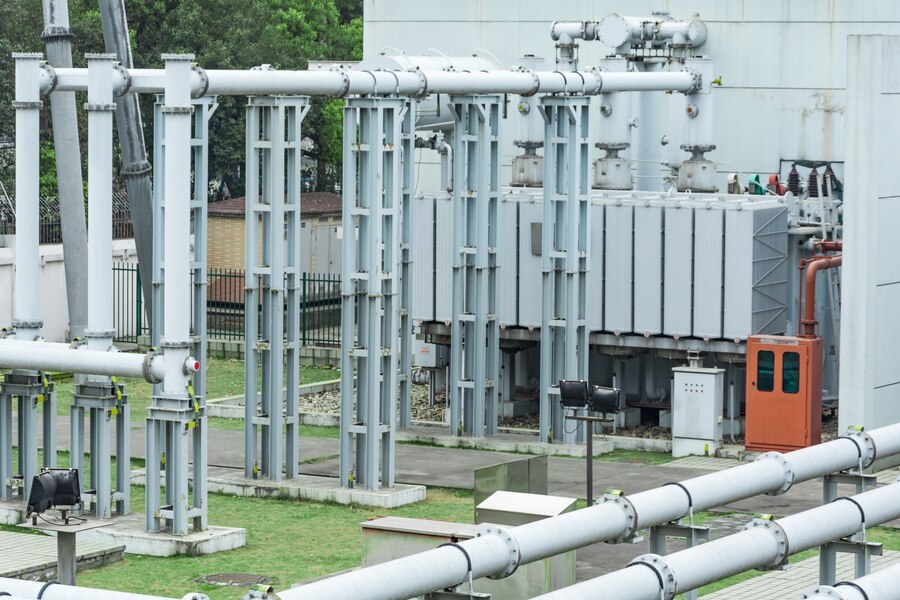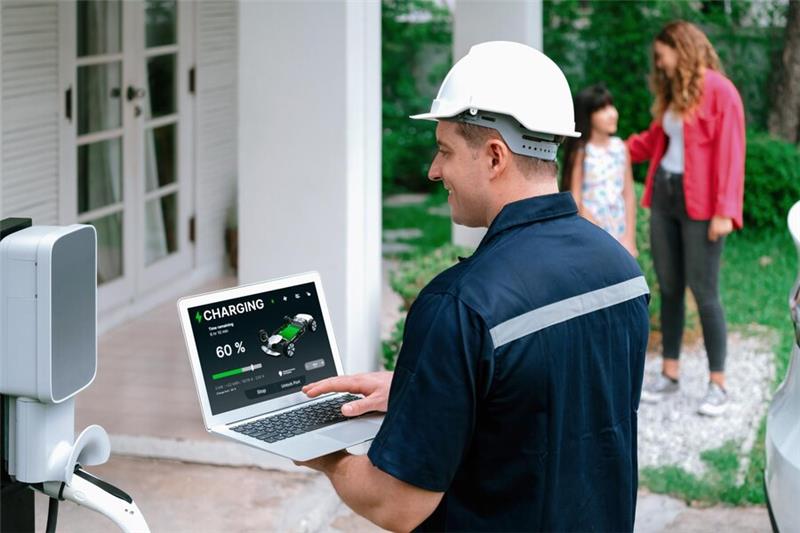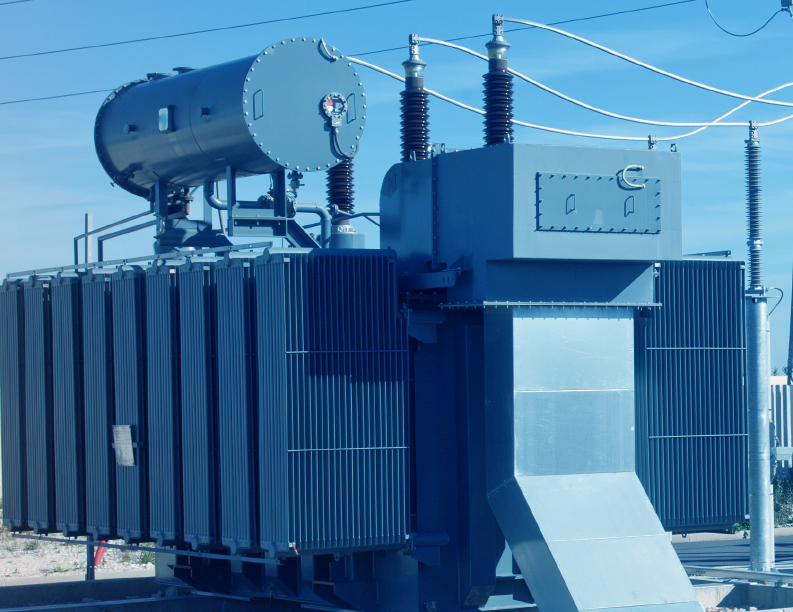Introduction
Gas generators, pivotal to numerous businesses and establishments, offer a lifeline during power outages. Their importance underscores the critical role of regular maintenance in ensuring they function optimally when required. For those in the roles of maintenance and asset management, understanding the nuances of maintaining these electrical assets is paramount. This article sheds light on the essential practices and insights to ensure the reliability and longevity of gas generators.
Importance of Preventive Maintenance
In today’s fast-paced industrial world, the reliability of machinery is of paramount importance. For institutions and businesses, the sudden failure of a gas generator can have detrimental effects, not just in terms of operational downtime but also financial repercussions. This underscores the significance of preventive maintenance for gas generators.
Routine Inspections:
A gas generator’s health can be determined by regular visual inspections. This doesn’t just mean a cursory glance but an in-depth examination of its components, checking fluid levels, and assessing the wear and tear of parts. By routinely inspecting the generator, “Maintenance & Asset Managers” ensure early detection of potential problems, which can be addressed before they escalate into major issues. This proactive approach not only prolongs the life of the generator but also ensures efficient performance.
Manufacturer’s Guidelines:
Every gas generator comes with a set of manufacturer’s guidelines, a treasure trove of information tailored specifically for that machine. These guidelines provide specific instructions about maintenance frequency, parts replacements, and more. Adhering to these recommendations ensures that the generator remains in optimal condition. It also aids in keeping the warranty intact and can be instrumental in saving costs in the long run.
Oil and Filter Changes:
Just like any other machine with moving parts, a gas generator requires lubrication to function smoothly. Regularly changing the oil ensures that the internal components of the generator are not subjected to undue friction, which can lead to wear and tear. Similarly, filters play a critical role in ensuring that the generator functions without any hiccups. Over time, filters get clogged and can impede the generator’s performance. Regular replacement of filters, based on usage and manufacturer’s guidelines, ensures that the generator operates at its peak efficiency.
Monthly Testing:
A gas generator might not be in constant use, especially if it’s a backup unit. However, this doesn’t mean it should be left idle. Running the gas generator at least once a month is a best practice that “Maintenance & Asset Managers” advocate for. This not only ensures that the generator is operationally ready but also helps in identifying any underlying issues that might have gone unnoticed during visual inspections.
Preventive maintenance is not just a recommended practice; it’s an essential one. It ensures that the gas generator is always in ready-to-use condition, minimizing the chances of unexpected failures. For businesses, where a lot is at stake, adhering to preventive maintenance protocols can be the difference between smooth operations and unexpected operational halts.
The Role of Technology in Maintenance
In the era of digitization and advanced technological advancements, the role of technology in maintaining gas generators cannot be understated. The integration of cutting-edge technology into maintenance practices has redefined how “Maintenance & Asset Managers” approach the health and efficiency of gas generators. By leveraging technology, businesses can ensure the longevity of their assets and significantly reduce unplanned downtimes.
Condition Monitoring:
One of the most revolutionary advancements in the maintenance sector is condition monitoring. By using sensors and advanced analytics, it’s now possible to monitor the health and performance of a gas generator in real-time. This continuous surveillance provides a wealth of data that can be analysed to detect anomalies or performance dips. Early detection is key in maintenance, and with real-time monitoring, potential problems can be identified and rectified before they escalate into major failures. This not only enhances the lifespan of the gas generator but also ensures its optimum performance, leading to operational efficiency.
Maintenance Management Software:
Maintenance is no longer about reactive measures; it’s about being proactive and strategic. Maintenance management software is a testament to this shift in approach. These digital platforms offer “Maintenance & Asset Managers” a centralized dashboard where they can track maintenance schedules, log work orders, and monitor associated costs. The ability to have all this information at one’s fingertips ensures that nothing slips through the cracks. Scheduled maintenance can be tracked, parts inventory can be managed, and the overall health of the gas generator can be overviewed, ensuring its peak performance at all times.
Performance Analytics:
Data is the new gold, and when it comes to gas generator maintenance, this couldn’t be truer. Modern software solutions offer intricate analytical insights into the generator’s performance. By collecting and analysing this data, “Maintenance & Asset Managers” can forecast when the next maintenance might be due or when a part might need replacement. This predictive approach reduces unplanned downtimes and ensures the gas generator operates at its maximum efficiency. Furthermore, by understanding performance trends, businesses can make informed decisions about upgrades or replacements.
In a nutshell, the fusion of technology into gas generator maintenance is not just a luxury but a necessity in today’s competitive landscape. It provides an edge, ensuring that the gas generator, an invaluable asset, remains in its prime condition, ready to deliver when called upon. The future of maintenance lies in the confluence of technology and strategy, and “Maintenance & Asset Managers” are at the forefront of this evolution.
Cost-effective Maintenance Planning
In an era where businesses are always striving for operational efficiency, cost-effective maintenance of gas generators is no exception. Asset managers and maintenance professionals often find themselves balancing the need to maintain the reliability of their gas generators with the constraints of their budgets. This equilibrium requires meticulous planning and strategy, ensuring that every dollar spent is geared towards the optimal performance and longevity of the gas generator.
Budget Allocation:
Every successful maintenance strategy begins with a well-defined budget. A designated budget for gas generator maintenance ensures that essential tasks, be they routine inspections or more intricate repairs, aren’t overlooked due to financial constraints. “Maintenance & Asset Managers” understand the significance of allocating funds specifically for this purpose. By doing so, they ensure the consistent health and performance of their gas generator, an asset that, when operating optimally, can save significant costs in the long run.
Inventory Management:
A well-maintained inventory of essential parts for gas generators can be a game-changer. By regularly updating this inventory, companies can expedite repairs and maintenance tasks, ensuring minimal downtime. This proactive approach not only guarantees the gas generator’s continuous operation but also eliminates the costs associated with urgent procurement of parts or prolonged waiting times. In essence, effective inventory management translates to efficient maintenance and reduced operational costs.
Efficiency Analysis:
The essence of cost-effectiveness lies in regular reviews. By periodically reviewing the cost-effectiveness of their maintenance practices, companies can identify areas of wastage and optimize resource utilization. This efficiency analysis allows “Maintenance & Asset Managers” to refine their strategies, ensuring that every decision, from procuring a part to allocating technician hours, is in line with their goal of maximizing the gas generator’s output while minimizing expenditure.
In the ever-evolving landscape of the Electrical asset monitoring software industry, where the emphasis is on maximizing output while minimizing costs, a cost-effective maintenance plan for gas generators is indispensable. By allocating budgets judiciously, maintaining an efficient inventory, and regularly reviewing practices, companies can ensure that their gas generator remains a reliable asset, driving their operations without burning a hole in their pockets.
The Nexus Between Storage and Longevity
Gas generators, pivotal assets for many businesses, demand not only routine maintenance but also a proper storage environment to ensure their longevity. Just as a well-maintained machine operates efficiently, a gas generator stored under the right conditions guarantees a longer operational life, reducing frequent maintenance costs and potential breakdowns. “Maintenance & Asset Managers” need to be aware of the intrinsic relationship between how a gas generator is stored and its resulting longevity.
Clean Storage:
The fundamental step to ensuring the long life of a gas generator is storing it in a clean environment. Dust and other contaminants can easily find their way into the intricate components of the generator, leading to wear and tear, malfunctions, or even significant damages in the long run. By ensuring that the storage space is clean, “Maintenance & Asset Managers” can reduce the risk of dust accumulation and its consequent detrimental effects on the gas generator’s performance.
Dry Environment:
Moisture is an enemy to electrical and mechanical equipment. Storing a gas generator in a moisture-laden environment can lead to corrosion of its components. Over time, this corrosion can impact the efficiency of the generator, reducing its operational life and leading to frequent maintenance needs. By ensuring that the storage environment is dry, companies can protect their gas generators from the perils of corrosion, thus extending their lifespan and ensuring optimal performance.
Regular Start-ups:
While it might seem counterintuitive, even during periods of storage, it’s beneficial to periodically start up the gas generator. These regular start-ups ensure that the generator remains in a ready state, with its components staying lubricated and functional. This practice prevents the settling of fluids and ensures that the generator doesn’t develop issues from prolonged inactivity. By integrating this practice into their storage routine, “Maintenance & Asset Managers” can guarantee that their gas generator remains ever-ready, even if it’s not in constant use.
In the realm of electrical asset monitoring, understanding the relationship between storage and the longevity of a gas generator is paramount. Proper storage conditions not only ensure the operational efficiency of the generator but also drastically reduce the costs and frequency of maintenance. By investing time and resources into creating the ideal storage environment, businesses can ensure that their gas generators remain robust and reliable assets for years to come.
Collaborating with Maintenance Providers
In the realm of maintaining the robustness and longevity of gas generators, “Maintenance & Asset Managers” play a critical role. However, their responsibilities can be significantly augmented by collaborating with specialized maintenance providers. These collaborations bring forth a myriad of benefits that ensure the gas generator’s health and optimal performance, ultimately aiding companies in monitoring and managing their electrical assets effectively.
Expertise Access:
Gas generators, being complex machines, necessitate a nuanced understanding for effective maintenance. By partnering with specialized maintenance providers, companies can tap into industry-specific insights and skills. These experts bring with them a wealth of experience, ensuring that the gas generator’s upkeep aligns with best practices and latest techniques. Such collaboration is particularly advantageous for “Maintenance & Asset Managers” as they can then focus on leveraging this expertise to enhance the reliability and performance of the gas generator.
Custom Maintenance Plans:
Every gas generator has its unique operational dynamics, depending on its make, model, and the environment in which it operates. One-size-fits-all maintenance strategies might not be the most effective. Collaborating with maintenance providers allows companies to develop tailored maintenance plans, aligning closely with the generator’s usage patterns and specific needs. Such custom plans ensure that the gas generator receives the precise care it requires, maximizing its operational life and efficiency.
Emergency Support:
Breakdowns and malfunctions are often unpredictable. In such scenarios, swift action is paramount to prevent extended downtimes and potential business disruptions. Established maintenance providers often offer 24/7 support, ensuring that any unexpected issues with the gas generator are addressed promptly. This round-the-clock support is invaluable, ensuring that businesses can rely on their gas generators even in the face of unforeseen challenges.
While gas generators are pivotal assets for many businesses, their optimal performance and longevity hinge on effective maintenance strategies. Collaborations with specialized maintenance providers offer a path to ensure just that. By leveraging the expertise, custom plans, and emergency support that these providers bring, “Maintenance & Asset Managers” can ensure that their gas generators remain reliable, efficient, and ready to deliver when needed.
Conclusion
Gas generators are invaluable assets, and their consistent performance is contingent on diligent maintenance. For maintenance and asset managers, understanding the intricacies of gas generator care is crucial. By integrating best practices, leveraging technology, and ensuring regular checks, one can significantly enhance the reliability and lifespan of these essential machines. As the saying goes, “Prevention is better than cure,” and in the realm of gas generators, preventive maintenance is undoubtedly the key to uninterrupted power and operational excellence.




